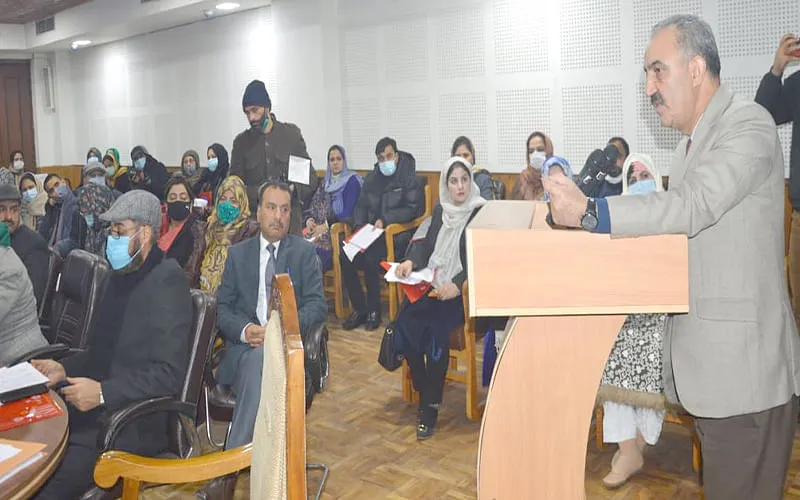Srinagar, Dec 24 : A one day workshop on “Gender Sensitisation–Breaking Barriers and Addressing Issues” was organised by Committee on Gender Sensitisation and Sexual Harassment of Women at Workplace, High Court of J&K and Ladakh, Srinagar wing, in association with J&K Judicial Academy and J&K Legal Services Authority at District Court Complex here.
According to a press note, the workshop was organised with the objective of generating awareness on gender related issues and raising sensitisation on the provisions of The Sexual Harassment of Women at Workplace (Prevention, Prohibition and Redressal) Act, 2013.Justice Ali Muhammad Magrey, Judge, High Court of J&K and Ladakh, Chairman Gender Sensitisation and Internal Complaints Committee inaugurated the workshop.
Sanjay Parihar, Director, J&K Judicial Academy, Shabnam Kamili, Mission Director ICDPS J&K and Gulafroz Jan Assistant Professor, Department of Law, School of Legal Studies, Central University, Kashmir were the resource persons in the workshop while Jeema Bashir, In-charge Principal District and Sessions Judge, Srinagar was also present on the occasion.
In his inaugural address, Justice Magrey highlighted the importance of sensitisation and awareness on gender related issues for both men and women. He emphasized the need for mutual respect between the genders for building a strong nation and highlighted the key provisions of the Act particularly those relating to its procedural aspects. He underscored the importance of the workshop for creating a safe and healthy environment for women in the organization resulting into better output and foster positive work culture.
In the technical sessions, Sanjay Parihar explained about the concept of gender sensitisation through a detailed power point presentation. He sensitised the participants on the facets of gender roles assigned by the society and the discrimination prevalent in the society arising from gender biases. He also explained the legal aspects of the Act and judicial precedents on the point and advised the participants to develop a gender sensitive approach for the purpose of productive participation of women at workplaces.






